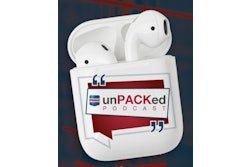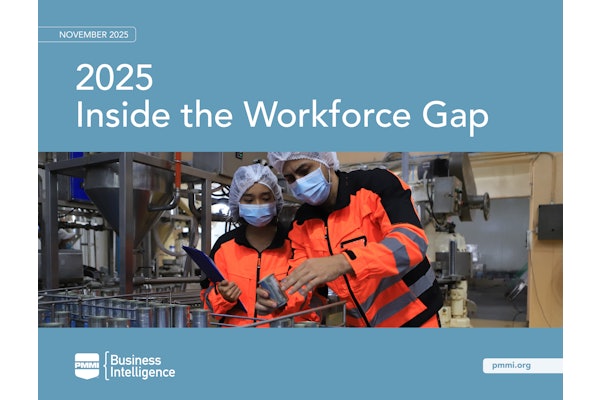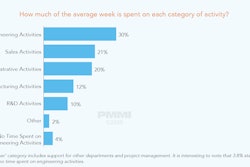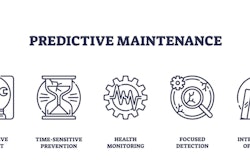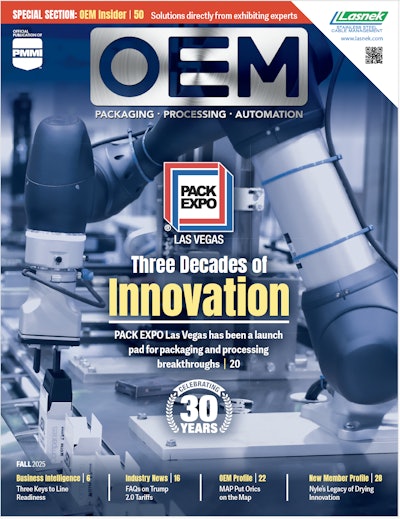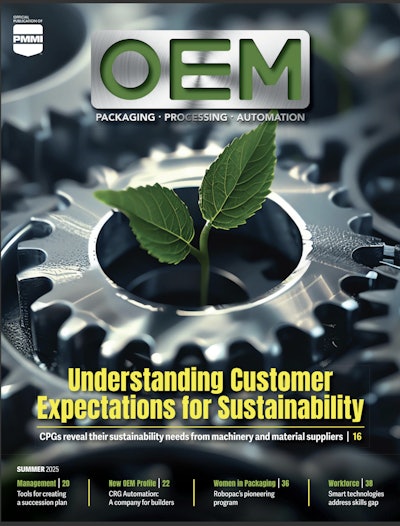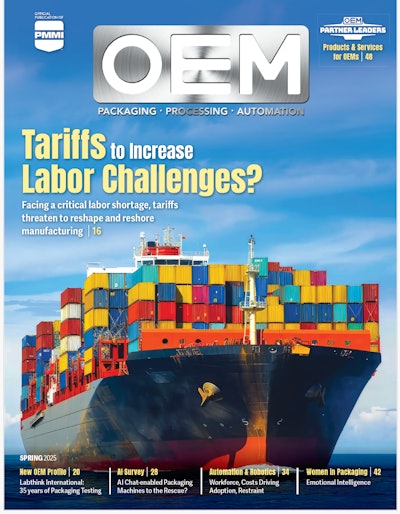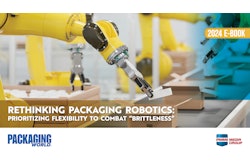When it comes to parental leave, OEMs in packaging and processing appear to be in a transition phase, according to PMMI’s Parental Leave Benchmarking Survey, balancing tradition with growing demands for flexibility and family support.
The most telling takeaway from the report is the clear divide between large and small companies. Among businesses with annual revenues over $250 million, every respondent offered paid leave for new mothers and fathers, regardless of whether the leave was for a biological birth, adoption, or surrogacy. At the other end of the scale, 58% of companies with revenues under $10 million reported offering no paid parental leave at all, as for smaller OEMs, the financial strain of providing paid leave remains a significant barrier.
The disparity also shows in the duration of leave offered. On average, large companies provide 58 days of paid leave for new mothers, while smaller firms offer just 19.8 days. The trend holds across categories, with larger businesses consistently providing longer, more comprehensive coverage.
The role of short-term disability
Short-term disability (STD) continues to play a pivotal role in bridging the parental leave gap—especially for companies without formal policies. While 66.7% of the largest firms provide STD benefits, less than half of small businesses do the same, with some companies relying exclusively on STD as a fallback for maternity leave.
Flexibility is also a growing trend. Many OEMs now offer phased returns to work, flexible PTO policies, and remote work options to ease the transition for new parents. These accommodations, though less formal than dedicated leave programs, serve as critical retention tools in a competitive labor market.
Beyond compliance
While regional mandates like New York’s Paid Family Leave and Washington’s Paid Family and Medical Leave programs influence policy adoption, many companies are looking beyond compliance. Comments from survey participants reflect a cultural shift toward viewing parental leave as an essential part of workforce support and equity.
“The U.S. lags behind global standards for parental support, and as an industry, we need to do better,” noted one respondent.
This sentiment underscores a broader recognition: paid parental leave is increasingly a marker of a company’s values and commitment to its people. As competition for skilled talent intensifies, OEMs—particularly smaller ones—may need to revisit their leave policies. With flexibility and family-supportive benefits becoming key differentiators, companies that offer even modest parental leave programs could gain an edge in recruitment and retention. Parental leave appears poised to shift from a “nice-to-have” to a baseline expectation in the packaging and processing sector.





